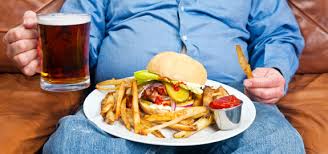As an athlete you work hard to play hard. You’ve got hours of practice every week which means you need to fuel your body the right way to keep up you
As an athlete you work hard to play hard. You’ve got hours of practice every week which means you need to fuel your body the right way to keep up your performance. It’s easy to stray from your athlete diet and indulge in those cheesy, greasy, deliciously unhealthy foods when you’re hungry after a long work out.
Bacon: Damn it. I love bacon. Too bad it’s loaded with saturated fat with no nutritional value. The average American will eat about 18 pounds of bacon a year. Sixty-eight percent of bacon’s calories are fat and an ounce of it has 30 milligrams of cholesterol. It’s salty fat that we crave 24/7. In one strip of bacon, there are 190 milligrams of sodium. These high levels are linked to heart disease, high blood pressure, and stroke. I know I’m just as disappointed as you, but there are some alternatives: Canadian bacon, turkey bacon and even lean sausage is a good replacement for your regular pork bacon.
Hydrogenated Oils and Trans Fats: Be aware of what you’re eating by reading the label on your chips. You should avoid this ingredient at all costs! Hydrogenated oils are vegetable oils with an added hydrogen molecule; this creates problems for athlete bodies such as increased belly fat and triggers an inflammatory response that inhibits muscle recovery. The FDA is also on its way to banning trans-fat as a whole. In the meantime, look for foods with monounsaturated fats such as olive oil.
Energy Drinks: Despite their marketing efforts telling you that an energy dink will put you ahead of the rest, they are terrible for you. Energy drinks are loaded with sugar and jittery-caffeine chemicals. One energy drink has about a whopping 240 milligrams of caffeine per can while coffee has about 95 milligrams. This caffeine gives you short term energy and a hard crash, these caffeine amounts can affect your health, body composition and performance. If you need to have that focus that energy drinks provide then you can simply take hordenine hcl to give you that boost without the jitters.
Alcohol: Another disappointment, but also a no-brainer, especially if you are under 21 and/or are serious about your training! Alcohol has no nutritional value and is high in calories. It’s bad for your liver, a vital organ. Also a hangover is never good before a work out or game, it actually affects you for the next three days. Your cells are dehydrated and cause poor performance and increased risk of injury. Instead drink water! Green tea brewed at home is also a great alternative, the less sugar in it the better.
Fibrous foods: Fiber is generally good for your health and wellness, but once again in moderation. Try to avoid fiber foods like beans and bran on game day of near competitions. Fiber slows down your digestion; too much fiber in your preworkout/pregame can cause bloating, discomfort and nausea.
Keep in mind these are only suggestions to follow; you’re free to eat what you want. Let’s face it, no body is perfect it’s ok to give in every once in a while. But remember the 80/20 rule; just don’t do it all the time. Actually try not to do it ever, but you don’t have to tell us… Bon appetite!
